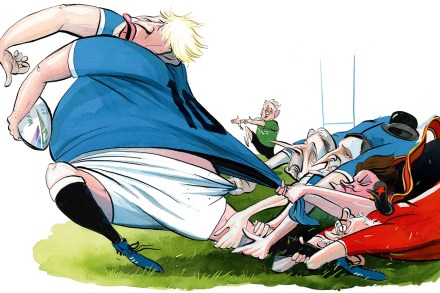The Spectator Podcast: now all Boris needs is an election
This week, the government looks close to the finishing line – now all Boris wants for Christmas is an early general election, James Forsyth and Katy Balls write in this week’s cover. But will Corbyn let it happen? On the podcast, Katy and James talk to James Mills, former advisor to John McDonnell and Jeremy Corbyn. Rather hair-raisingly, James Mills tells us that if it were up to him, he wouldn’t allow the government to call an election until the spring. Cripes. And as months of grenade attacks blight Swedish neighbourhoods, we get to the bottom of why Sweden doesn’t want to talk about its rise in violent crime. In















